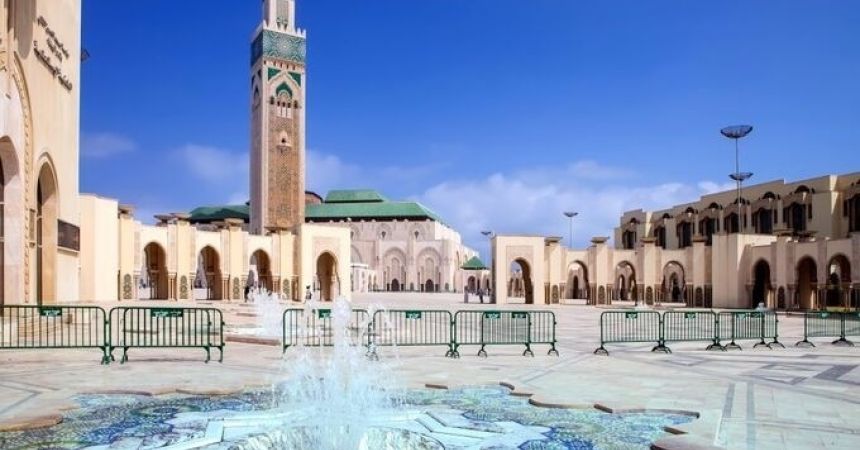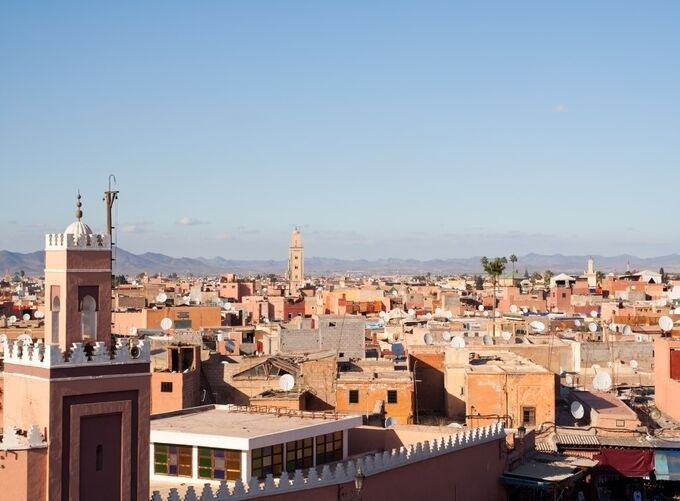
Morocco Travel Transport Guide Best Way Explained
Figuring out the best way to travel around Morocco is one of the most important parts of trip planning. Morocco looks compact on the map, but distances, mountain roads, and desert routes can make travel times longer than expected. Choosing the right transportation style will shape your sightseeing experience, comfort level, and overall holiday enjoyment.
This guide explains the best ways to get around Morocco for vacations, tours, honeymoons, and multi-city itineraries—whether you prefer private tours, group tours, or independent travel.
Understanding Distances & Travel Realities in Morocco
Morocco is geographically diverse. Traveling between imperial cities, crossing the Atlas Mountains, or reaching the Sahara Desert involves long drives and changing road conditions. While domestic transport exists, many travelers underestimate travel times.
That’s why smart travel arrangements—often through organized tours or private drivers—are key to enjoying Morocco without stress.
Private Driver & Private Tours: The Best Overall Option
For most travelers, private tours with a driver are the best way to travel around Morocco. This option offers maximum comfort, flexibility, and efficiency—especially for first-time visitors and Morocco honeymoon travelers.
Why Private Tours Work So Well
- Door-to-door transportation
- Flexible departure times and stops
- Knowledgeable local drivers
- Ideal for families, couples, and small groups
Private tours are especially useful on routes such as Marrakech to the Sahara Desert, where public transport is limited and time-consuming.
Most Morocco travel packages include private transportation, making sightseeing smoother and more enjoyable.
Group Tours: Cost-Effective & Well-Organized
Group tours are another popular way to travel around Morocco, particularly for budget-conscious travelers or solo visitors. These tours follow fixed itineraries and schedules, covering major highlights efficiently.
Pros of Group Tours
- Lower overall cost
- Social travel experience
- Pre-arranged hotels, guides, and transport
- No logistics to manage
Group tours in Morocco are ideal for classic routes like Marrakech–Desert–Fez, though they offer less flexibility than private tours.
Train Travel: Best for Major Cities
Morocco’s train network is modern and reliable between major cities. Trains are a good option if your itinerary focuses on urban sightseeing.
Train routes work well between:
- Casablanca and Rabat
- Casablanca and Fez
- Casablanca and Marrakech
Trains are comfortable and affordable, but they don’t reach desert regions or smaller towns, limiting their usefulness for full Morocco itineraries.
Domestic Flights: When Time Is Limited
Domestic flights can save time if you’re short on days, especially for long distances. Flying between Casablanca, Marrakech, and southern cities can reduce travel fatigue.
However, flights add airport time and don’t eliminate the need for ground transport. For scenic routes and sightseeing, private tours are usually more rewarding than flying.
Renting a Car: Only for Confident Drivers
Self-driving is possible in Morocco, but it’s not ideal for most visitors. Traffic in cities can be chaotic, signage inconsistent, and rural roads challenging—especially in the mountains.
Renting a car may work if:
- You’re an experienced international driver
- Your itinerary is city-based
- You’re comfortable navigating unfamiliar roads
For desert routes and longer Morocco journeys, a driver-guided tour is strongly recommended.
Local Transport: Taxis & Buses
In cities, petit taxis are useful for short distances, while grand taxis cover longer intercity routes. These options are inexpensive but not always comfortable or easy for non-Arabic/French speakers.
Buses connect many towns, but schedules can be long and unpredictable. Local transport is best used for short hops—not for full sightseeing itineraries.
Best Transport by Travel Style
Choosing the best way to travel around Morocco depends on your travel goals:
- First-time visitors: Private tours or group tours
- Honeymoon travelers: Private tours with upgraded vehicles
- Families: Private drivers for comfort and flexibility
- Budget travelers: Group tours or trains + city taxis
- Short holidays: Domestic flights combined with private transfers
Most travelers find that organized tours booking delivers the best balance of comfort, efficiency, and value.
How Travel Choices Affect Your Itinerary
Transportation directly impacts how many places you can realistically visit. For example:
- Marrakech to Fez via desert: 2–3 days by road
- Marrakech to Essaouira: 3 hours by car
- Fez to Chefchaouen: 4 hours by road
Private tours allow stops at scenic viewpoints and cultural sites, turning travel days into sightseeing highlights.
Cost Comparison: What’s the Best Value?
While private tours cost more upfront, they often provide better overall value by including:
- Transport
- Guides
- Sightseeing stops
- Time savings
When compared to booking trains, taxis, hotels, and guides separately, organized Morocco vacation packages are often more economical and far less stressful.
Final Verdict: What’s the Best Way to Travel Around Morocco?
For most travelers, the best way to travel around Morocco is with organized private tours or well-structured group tours. These options remove logistical challenges, maximize sightseeing time, and ensure comfort—especially on long or complex routes.
Trains and flights work well as supplements, but rarely replace guided overland travel. With smart planning and professional travel arrangements, getting around Morocco becomes part of the adventure, not a challenge.

Frequently Asked Questions (FAQ)
What is the easiest way to travel around Morocco?
Private tours are the easiest option, offering door-to-door transport, flexibility, and expert local drivers for smooth sightseeing.
Is train travel good for Morocco vacations?
Yes, trains are excellent between major cities, but they don’t reach desert regions or smaller towns.
Should I rent a car in Morocco?
Only if you’re confident driving internationally. Most travelers prefer private drivers for comfort and safety.
Are group tours a good way to see Morocco?
Yes, group tours are affordable and efficient, covering highlights with organized transport and guides.
What is the best option for honeymoon travel in Morocco?
Private tours are best for honeymoons, offering privacy, comfort, flexible pacing, and romantic experiences.



